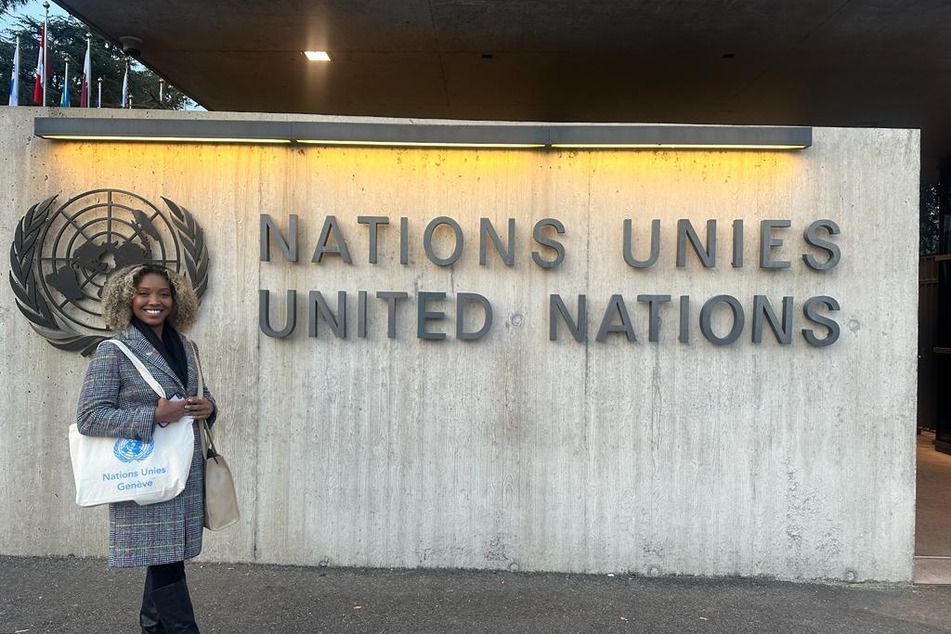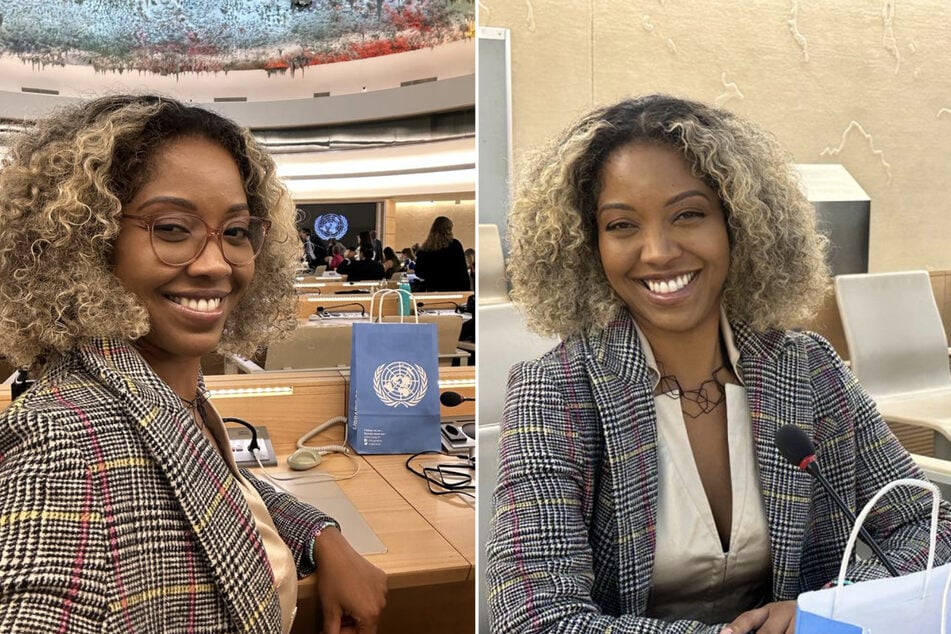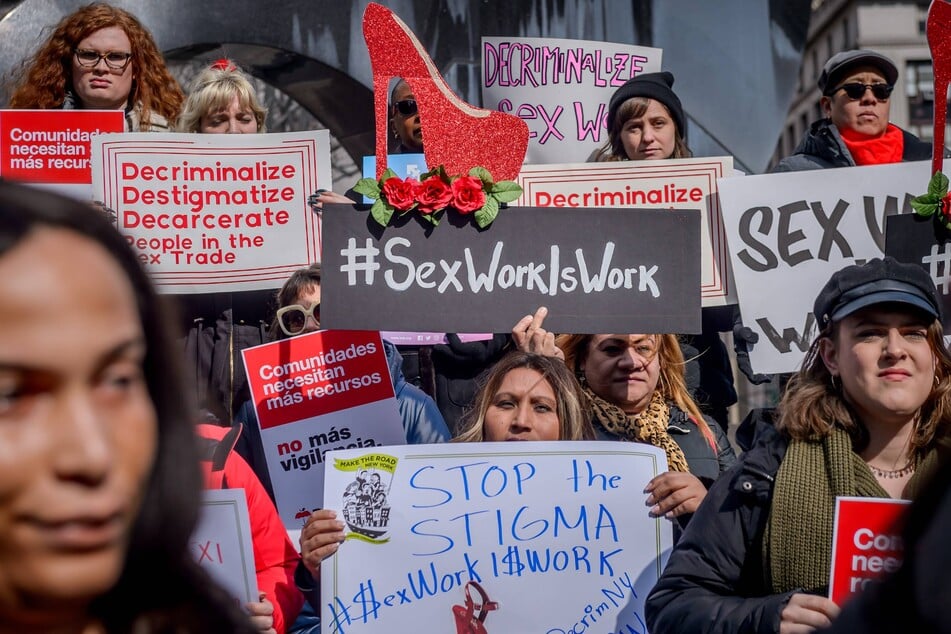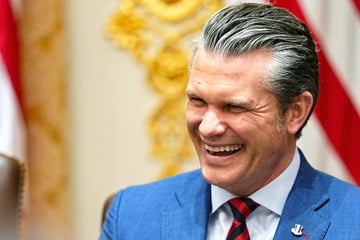"Stop discounting us": Lotus Lain on the fight to decriminalize sex work
Geneva, Switzerland - When Lotus Lain found out she was invited to go to the United Nations in Switzerland to testify on sex worker rights, she didn't even have a passport.

The tight deadline to secure necessary documentation amid a looming government shutdown did not stop Lain from making her historic journey from Los Angeles to Geneva to represent sex workers in the United States on the world stage.
Appearing on behalf of the Free Speech Coalition and DecrimSexWorkCA at the 139th session of the UN Human Rights Committee, which monitors state parties' implementation of the International Covenant on Civil and Political Rights, Lain's primary objective was to call into question the US' approach to sex work and sex trafficking.
Her message going into the review was clear: throwing sex workers and sex trafficking survivors in jail on prostitution charges does not make it easier for them to lead a "normal life." All it does is leave them with a record that creates additional barriers to opening bank accounts, accessing housing, and securing other jobs, leaving them vulnerable to further trafficking.
"What the world needs to understand is that the way that we persecute these crimes actually criminalizes the victims themselves rather than helping them and supporting them in the way [authorities] say they want to," Lain told TAG24 NEWS in an interview in Geneva.
"If they wanted to actually support victims and prevent trafficking, there would be a lot more supportive, preventative programs put in place before trafficking was even able to happen."
Demanding a seat at the table

Although Lain traveled across an ocean to share her message, she never got the opportunity to speak in official meetings.
Human Rights Committee members met with civil society representatives from NGOs across the US ahead of the official review in order to develop their recommendations for the US State Department. Lain was listed last in the line-up of speakers, and when time ran out, the committee members left without hearing her story.
Unfortunately, the feeling of being silenced felt all too familiar: "Sex workers and sex trafficking victims, we're always thought of last. We're really not ever even thought of. The fact that we were just barely brought to the table and placed at the bare end of the table was just so symbolic, and then getting cut off even more so."
Had she had the chance to be heard, Lain wanted the Human Rights Committee and the US delegation to understand that sex worker rights are inextricable from the issues other civil society representatives were speaking about – from ending mass incarceration of Black and brown people, to labor rights, reproductive freedom, and more.
"You cannot talk about helping these groups without talking about helping sex workers, so I hope you are prepared to understand that when you help these groups, you are helping sex workers. And when you're helping sex workers, you're helping these groups," she was prepared to share.
Challenging stigmas around sex work

The pattern of extreme marginalization and silencing opens the door to trafficking, as Lain pointed out.
Much of this exploitation and abuse could be avoided if there were basic preventative measures in place, including channels for sex workers to report cases of housing, financial, and other forms of discrimination and to seek remedies without fear of judgment and persecution.
Creating these opportunities requires lawmakers to revisit common misconceptions about what trafficking is.
"Trafficking is not just someone who's stealing people off the street against their will," Lain clarified. "Trafficking is coercion. Trafficking is selling people lies and a fantasy they can't get elsewhere in life, and people being so desperate that they're willing to take that chance, or out of desperation from having so many other options shut down to them that [sex work] seems like the only viable option to get ahead."
Not being taken seriously leads to further stigmatization and an environment where sex workers and trafficking survivors do not feel comfortable speaking out about their own experiences.
"One of the main things people should know and understand is that sex workers are givers. We are people who want to give pleasure, who want to spread love and a feeling of goodness to people," Lain said.
"We're literally just like everybody else. We are your friends, your family, your cousins, the people you don't get to know all that they do because you don't create a safe enough world for us to discuss all that we do. It's secret because the world has made it secret for us."
The fight for decriminalization

In charting a new path forward, advocates say there is an important distinction to be made between decriminalizing and legalizing sex work.
"Legalization creates this incentive for law enforcement and lawmakers to create an entity for verification to achieve legalization, which is literally exactly what we don't want for sex work because the whole reason so many people get into sex work is the low barrier of entry," Lain told TAG24.
Requirements to acquire identification and report earnings to the government would put up additional obstacles for low-income people and undocumented immigrants, as well as those in abusive relationships, who are trying to make a living without undue outside interference.
"That's why legalization is not as favored because if you do something outside 'the law' and what's legal, now you're illegal again, and I know for a fact that creates a black market."
The legalization of recreational marijuana is a case in point. Burdensome application, licensing, and renewal fees have eliminated mom-and-pop cannabis farms in many places while allowing major conglomerates to rake in huge profits. Once a limit on available licenses is reached, everyone else is forced to operate underground.
"The point of decriminalization is that none of that would exist because it's a consensual agreement between two adults, just two adults making this decision on their own."
Recognizing sex workers' contributions

Apart from decrying US policies that lead to trafficking and exploitation, Lain also traveled to the UN to tell the world about the good sex workers can bring to the table – if they are treated with the dignity and respect they deserve.
"In real talk, I just want people to sit back and realize how many contributions sex workers have made to society," Lain said. "For instance, we have so much knowledge on sexual health, and the industry of sex education and sexual health is so behind."
Those in the porn industry have sex so frequently that they are often able to identity the signs of emerging sexually transmitted infections (STIs) and diseases before they reach scientists and the wider public. While many people are aware of syphilis, chlamydia, and gonorrhea, there are other STIs, like Mycoplasma genitalium (Mgen), virtually unknown outside the sex industry.
"Because we're not talked to, researched with, collaborated with by research professionals or other educational institutions and those in academia, those infections don't get discovered and put into the general population narrative," Lain warned.
On top of that, public health officials had a lot to learn from sex workers about contact-tracing measures to curb the spread of Covid-19, knowledge that could help prepare the world for future global pandemics.
"Consent and boundary safety practices, all this stuff that came out of #MeToo, we have been doing that," Lain continued. "Strippers practice consent every day. They literally negotiate it in the most vulnerable position: naked on five-inch stilettos."
"We have so much information we can help the world with, if they would stop discounting us."
Cover photo: Courtesy of Lotus Lain

